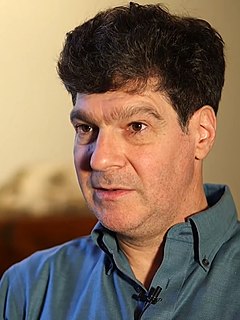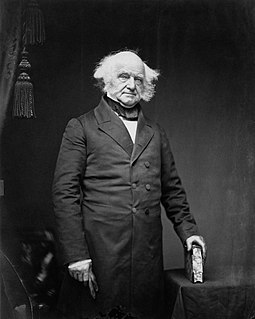A Quote by Edward Gibbon
The most sublime efforts of philosophy can extend no farther than feebly to point out the desire, the hope, or, at most, the probability, of a future state, there is nothing, except a divine revelation, that can ascertain the existence, and describe the condition of the invisible country which is destined to receive the souls of men after their separation from the body.
Related Quotes
The fact of our deriving constant pleasure from whatever is a type or semblance of divine attributes, and from nothing but that which is so, is the most glorious of all that can be demonstrated of human nature; it not only sets a great gulf of specific separation between us and the lower animals, but it seems a promise of a communion ultimately deep, close, and conscious, with the Being whose darkened manifestations we here feebly and unthinkingly delight in.
Most of life is so dull that there is nothing to be said about it, and the books and talks that would describe it as interesting are obliged to exaggerate, in the hope of justifying their own existence. Inside its cocoon of work or social obligation, the human spirit slumbers for the most part, registering the distinction between pleasure and pain, but not nearly as alert as we pretend. There are periods in the most thrilling day during which nothing happens, and though we continue to exclaim, "I do enjoy myself", or , "I am horrified," we are insincere.
The human condition comprehends more than the condition under which life has been given to man. Men are conditioned beings because everything they come in contact with turns immediately into a condition of their existence. The world in which the vita activa spends itself consists of things produced by human activities; but the things that owe their existence exclusively to men nevertheless constantly condition their human makers.
It is often during the worst of times that we see the best of humanity–awakening within the most ordinary of us that which is most sublime. I do not believe that it is circumstance that produces such greatness any more than it is the canvas that makes the artist. Adversity merely presents the surface on which we render our souls’ most exacting likeness. It is in the darkest skies that stars are best seen.
Quick souls have their intensest life in the first anticipatory sketch of what may or will be, and the pursuit of their wish is the pursuit of that paradisiacal vision which only impelled them, and is left farther and farther behind, vanishing forever even out of hope in the moment which is called success.
It seems then, say I, that you leave politics entirely out of the question, and never suppose, that a wise magistrate can justly be jealous of certain tenets of philosophy, such as those of Epicurus, which, denying a divine existence, and consequently a providence and a future state, seem to loosen, in a great measure, the ties of morality, and may be supposed, for that reason, pernicious to the peace of civil society.
It is most cheering and encouraging for me to know that in the efforts which I have made and am making for the restoration of a righteous peace to our country, I am upheld and sustained by the good wishes and prayers of God's people. No one is more deeply than myself aware that without His favor our highest wisdom is but as foolishness and that our most strenuous efforts would avail nothing in the shadow of His displeasure.
Reason cannot desire for man any condition other than that in which not only every individual enjoys the most absolute, unbounded freedom to develop himself out of himself, in true individuality, but in which physical nature, as well, need receive no other shaping by human hands than that which is given to her voluntarily by each individual, according to the measure of his wants and his inclinations, restricted only by the limits of his energy and his rights.
I am approached with the most opposite opinions and advice, and that by religious men, who are equally certain that they represent the Divine will. ... I hope it will not be irreverent for me to say that if it is probable that God would reveal his will to others, on a point so connected with my duty, it might be supposed he would reveal it directly to me... These are not, however, the days of miracles ... I must study the plain physical facts of the case, ascertain what is possible, and learn what appears to be wise and right.




































